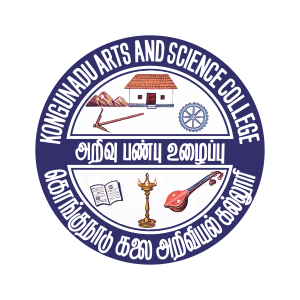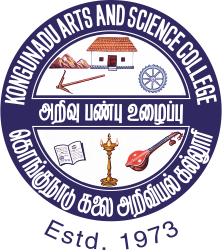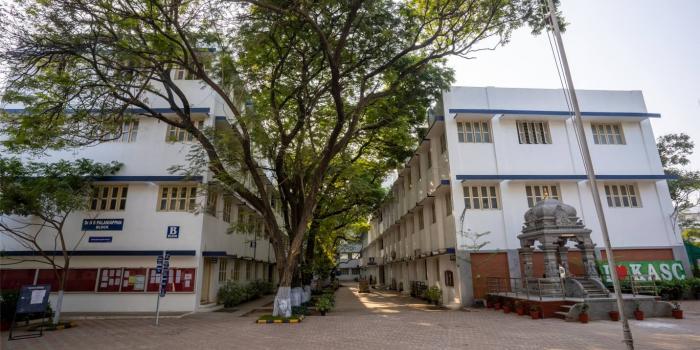NSS is included in the curriculum as a co-curricular activity. At the end of the sixth semester volunteers have to show satisfactory performance in the regular activities as well as the special camping programmes of the NSS, with 75% attendance, to add one credit point to their degrees. The Student volunteers work for two years or 240 hours of their Undergraduate study period. Their service to the society is categorized under two dimensions:
(1) Regular Activities
(2) Special Camping Programmes.
NSS Adopted Villages:
- Rayagoundanur Adidravidar Colony
- Arisipalayam
- Vazhukkuparai
- Vazhukkuparaipudur
- Meenakshipuram
- Thoppampalayam
- Kannamanaickenur
- Dhanalakshmipuram Adidravidar Colony
- Mampalli
- Nachipalayam
- Thambagoundanur
A. Typical projects:
- Adoption of villages
- Construction and repair of roads
- Afforestation
- Encephalitis awareness classes
- Water conservation
- Plastics eradication
- Eye donation
- Tree plantation literacy
- Blood donation
- Soft skill programs
- Youth for the nation program
B. Special Camping Programme (Seven days Residential Special Camp)
C. Flagship Programmes:
1. Environment Awareness Programme
2. Greening of the surrounding Project
3. Anti-Drug Campaign
4. Energy Conservation Programme
5. Anti-Ragging Programme
6. First-aid Training Programme
7. Skill Development Campaign
8. Traffic Awareness Programme
9. Water conservation Programme
10. Voter Awareness Programme
11. Parthenium Eradication and Awareness Campaign.
D. Special Projects:
1. Drops of Love – Blood donation campaign
E. Regular Activities:
(a) Environment Enrichment Programmes:
1) Plantation of trees, their preservation and upkeep (each NSS Unit should plant and protect at least 100 saplings in and around the campus and in the adopted Places)
2) Creation of NSS parks/gardens, Vegetable gardens and Medicinal gardens.
3) Anti-plastic campaigns – eco friendly Bag making unit.
4) Vegetable/Medicinal/ Ornamental Garden
5) Chlorination of village ponds and wells.
6) Vermi-compost project in each unit. Popularization and construction of Gobar Gas Plants-use of non-conventional energy.
7) Waste Management Programme – Land, Air & Water Pollution
8) Rainwater harvesting.
(b) Greening of the surrounding:
Documentation of Saplings planted in and outside the campus.
(c) Health Awareness Programmes:
1) Anti – Drug Campaign.
2) First – Aid Training Programme
3) Blood – Donation campaign
4) Dengue awareness campaign
5) AIDS Awareness Programme.
6) Healthy Food Habits.
7) Healthy Life Style.
8) Medical camps
d) Educational Programmes:
1) Legal Literacy programme
2) Computer Literacy programme c) Consumer Awareness Programme
3) Human Rights Awareness Programme
4) Career Guidance Programme
5) Traffic Awareness Programme.
6) Value Education Programme
7) Communicative Skill i) Personality Development & Leadership Classes.
8) Stress /Disaster Management Programme.
9) Effective Parenting.
10) Energy Conservation Programme.
e) Women Empowerment Programmes:
1) Programmes of educating people and making them aware of women’s rights, both Constitutional and legal.
2) Creating consciousness among women that they too contribute to economic and social well being of the community.
3) Creating awareness among women that there is no occupation or vocation which is not Open to them.
4) Imparting training to women in sewing, embroidery, knitting and other skills where ever possible.
f) Social Service Programmes:
1) Two days in a Palliative Care Centre.
2) Work in institutions meant for physically and mentally handicapped.
3) Organizing blood donation camps and eye-pledge programmes.
4) Work in Orphanages, homes for the aged etc.
5) Work in welfare organizations of women.
6) Prevention of slums through social education and community action.
7) Programmes for making villages self sufficient.
8) Soap making units, Paper carry bag making unit, tailoring unit
g) Relief & Rehabilitation work during Natural calamities:
1) Disaster Management Programme - Assisting the authorities at the time of natural disasters and calamity.
h) Creation of Durable Assets:
1) Home for the Homeless
2) Libraries in adopted places, hospitals, etc.
3) Construction of sanitary latrines.






